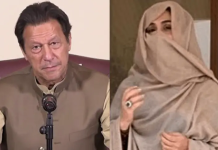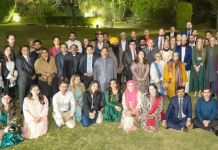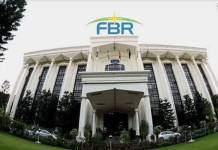The Russian Orthodox Church blesses rather than fires weapons. In doing so, it has emerged as a powerful weapon in its own right in President Vladimir Putin’s civilisationalist arsenal.
Mr. Putin justified his 12-day-old invasion of Ukraine in part by asserting that President Volodymyr Zelenskyy’s government had been preparing for the “destruction” of the Ukrainian Orthodox Church.
Mr. Putin was referring to that part of the church that remained loyal to the Moscow Patriarch after the Ukrainian church in 2018 declared itself independent. Unwittingly, Mr. Putin may have been acknowledging that all may not be well in the church, at least from not from his perspective.
Choosing his words carefully, Metropolitan Onufry, the head of the pro-Moscow wing of the church, called for an end to the fighting.
“Forget mutual quarrels and misunderstandings and … unite with love for God and our Motherland,” Mr. Onufry said.
The Metropolitan’s call contrasted starkly with maximalist remarks by the Moscow church’s patriarch, Archbishop Kirill, a staunch supporter of Mr. Putin. “When I say ‘Russian,’ I use the ancient expression from ‘A Tale of Bygone Years – Where from has the Russian land come,’ the land which now includes Russia and Ukraine and Belarus and other tribes and peoples,” the patriarch said.
In his war, Mr. Putin’s notion of religious fault lines amounts to drawing a landscape in which much of the terrain is covered and out of sight.
Mr. Putin would have less of a problem with the repression becoming known of the pro-Kyiv wing of the Ukrainian Orthodox Church in areas of Ukraine that Russia controls, including Crimea and the breakaway republics of Donetsk and Luhansk.
More problematic is the harassment and intimidation of the rapidly growing Evangelist community. If widely known in powerful Evangelist communities in the United States, it could undermine empathy for Mr. Putin as a conservative defender of family and traditional values.
“Moscow sees religion as a key front in the battle to control both Crimea and Donbas and to project influence into the rest of Ukraine,” said John E. Herbst, a former US ambassador to Ukraine.
Similarly, largely unnoticed in the discussion about Ukraine are demographic concerns among Russian nationalists and the Orthodox church. Demographers predict that with birth rates declining among ethnic Russians and increasing among Muslims, Islam is on track to account for one-third of Russia’s population by 2050.
“There won’t be any Russians left in 2050,” warned Dimitri Smirnov, chairman of the church’s Patriarchal Commission on Family, Maternity and Childhood Protection. Asked by Govorit Moskva radio what the church could do to reverse the trend, Mr. Smirnov replied: “It’s too late.”
That may have been an exaggeration by the church’s elite who enjoy many of the perks of being in Mr. Putin’s circle, including feeding off the gravy train of hundreds of millions of dollars in state funds that have been designated for the restoration and maintenance of church properties and social work.
However, opposition to the church’s course has been building among its rank and file, many of whom do not enjoy the leadership’s perks. Lower-ranking priests have criticised prescribed sermons that warn against the perils of democracy, glorify Mr. Putin for restoring Russian pride, project Russian intervention in Syria as a mission to save Christians, and support Russian occupation of Ukrainian and Georgian lands.
Last week, 150 Russian Orthodox clerics called for an end to the war in an open letter.
“The church is closely tied to the current government. There is mounting hostility to its ruling class because of its ostentatious consumption, luxury, power, and repression. People feel that the church has become obsessed with earthly goods. This is risky because sooner or later, power will change hands,” said a Russian political scientist in an email exchange.
Risky as it may be, many in the Balkans fear that the church could help make Bosnia Herzegovina one of Mr. Putin’s next targets should he subdue and maintain control of Ukraine.
“Russia sees the Balkans as NATO’s soft underbelly where they can foment chaos and create a mess,“ said Bosnian journalist and scholar Harun Karcic.
Noting that church support was a prerequisite for electoral success in countries like Serbia, Greece, Montenegro, and Macedonia, Mr. Karcic asserted that “whatever happens in Ukraine will not stop in Ukraine. Bosnia will likely be one of the next countries of interest.”
The journalist-scholar described Milorad Dodik, the Serb member of the tripartite Bosnian presidency, as “a major Russian player who is a great supporter of the Russian Orthodox Church… Here we have a full Russian proxy who is a very public fan of the Russian Orthodox Church who effectively controls half of Bosnia.”
Last year, Mr. Dodik put Bosnia on tenterhooks, pulling Republika Srpska, the Serb constituent element of the country, out of key government institutions, including the military, the judiciary, and the tax administration. The move threatens to destabilize Bosnia, almost three decades after it was founded on the ashes of a bitter ethnic and sectarian war.
Mr. Dodik is in good company. Serbia itself has emerged as a potential monkey wrench in the Balkans by breaking with Europe and refusing to close its air space to Russian flights. Moreover, Air Serbia has doubled to 15 from seven the number of weekly flights it operates from Belgrade to Russia.
To watch a video version of this story please click here.
A podcast version is available on Soundcloud, Itunes, Spotify, Stitcher, TuneIn, Spreaker, Pocket Casts, Tumblr, Podbean, Audecibel, Patreon, and Castbox.
Dr. James M. Dorsey is an award-winning journalist and scholar, a Senior Fellow at the National University of Singapore’s Middle East Institute and Adjunct Senior Fellow at Nanyang Technological University’s S. Rajaratnam School of International Studies, and the author of the syndicated column and blog, The Turbulent World of Middle East Soccer.

















